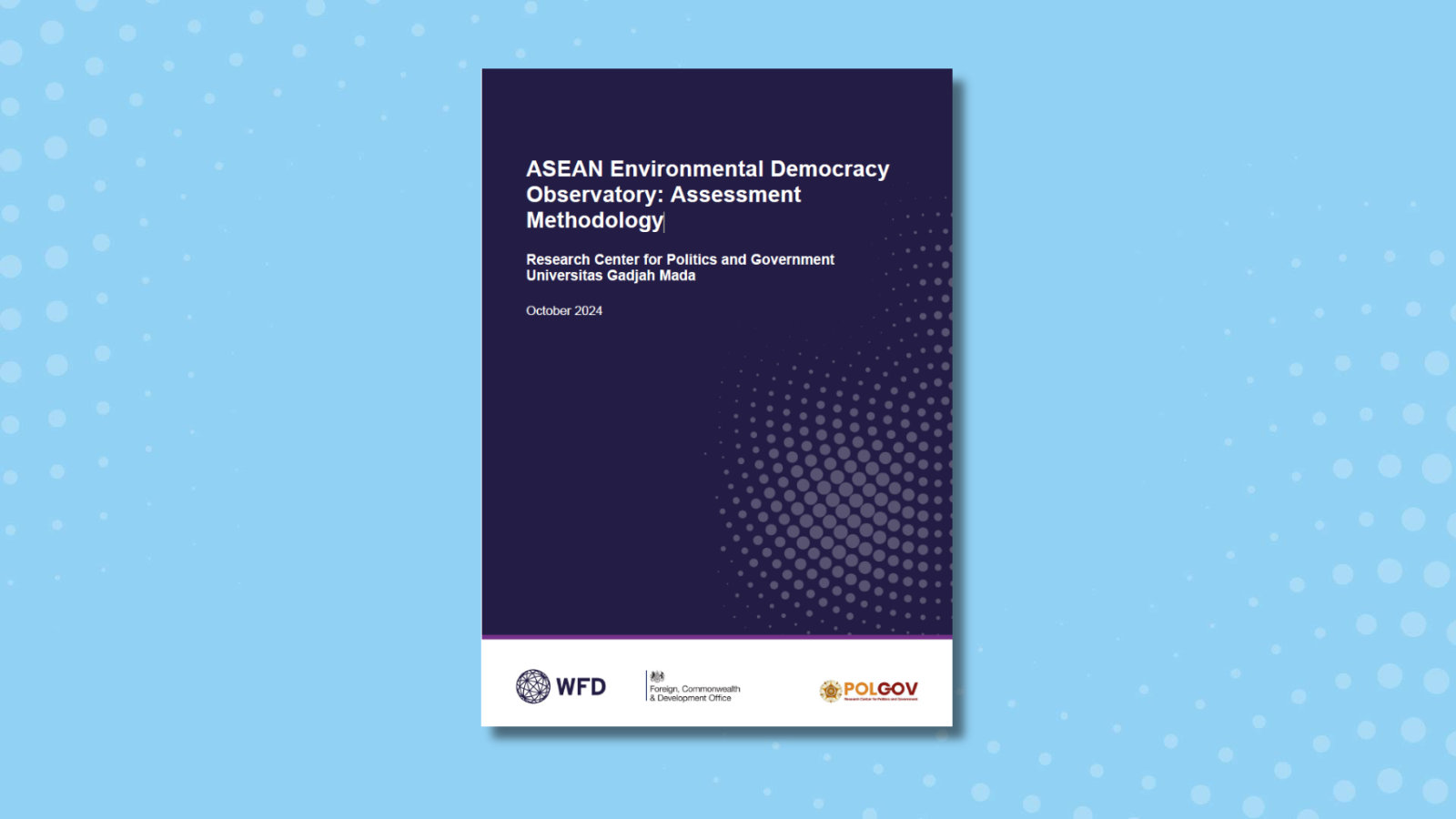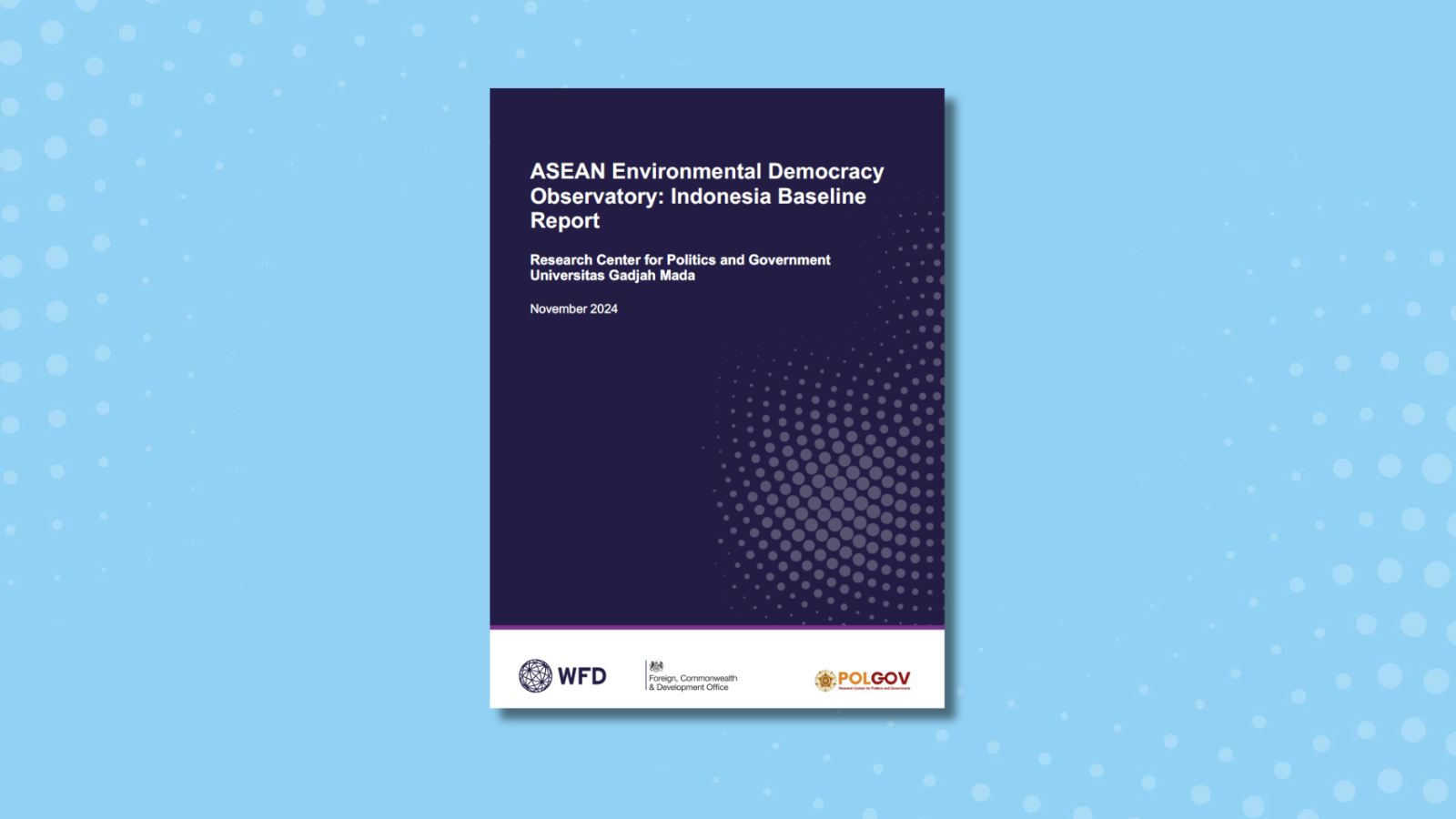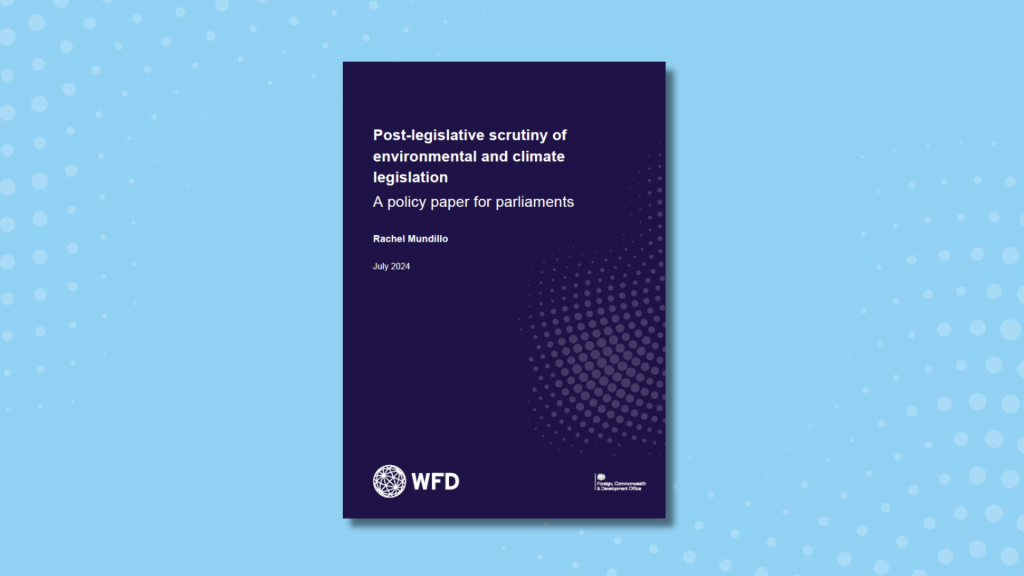Environmental Democracy Observatory
In 2015, in collaboration with partners around the world, The Access Initiative (TAI) and the World Resources Institute (WRI) launched the Environmental Democracy Index (EDI), which evaluates 70 countries across 75 legal indicators established by the Bali Guidelines. Among these 70 countries were 6 Association of Southeast Asian Nations (ASEAN) member states: Indonesia (overall index score: 1.80), Thailand (1.38), the Philippines (1.35), Vietnam (1.16), Cambodia (0.76), and Malaysia (0.58). Since then, the index has not been updated.
Through this ASEAN Environmental Democracy Observatory (EDO) initiative, the Westminster Foundation for Democracy (WFD) in collaboration with the Research Centre for Politics and Government (PolGov) of Universitas Gadjah Mada have reworked the methodology and expanded its scope to cover the implementation - in addition to legal formal - requirements of environmental democracy. In the longer term, WFD and PolGov plan to establish an EDO community of practice to undertake a regular assessment to update the observatory with the aim of incentivising governments to "race to the top" in upholding environmental democratic rights.
Methodology
Upon conducting an initial assessment on the 2015 EDI, we concluded that the methodology employed an approach that leans heavily towards the legal formal aspects of environmental democracy. Our updated methodology intensifies the extent to which a country is evaluated not only in terms of regulatory compliance in line with the Bali Guidelines, but also the multifaceted aspects of policy implementation. By strengthening this aspect of the methodology, the observatory will be able to fairly assess each country based on their progress and then propose recommendations for improvement.
Our methodology utilises three primary strategies:
The three pillars of Environmental Democracy

Access to information
The ability of citizens to gain access to public information on the state of the environment and public authority actions on the environment freely, effectively, and timely without any legal or procedural restrictions.

Public participation
The ability of citizens to participate in all stages of environmental decision-making freely, effectively, and timely without any fear from prosecutions or harassment.

Access to justice
The ability of any natural or legal persons to access independent and impartial justice mechanisms to challenge public authority decisions, actions or inactions, and policies on the environment.
Learn more about ASEAN Environmental Democracy Observatory: Assessment Methodology

Learn more about ASEAN Environmental Democracy Observatory: Indonesia Baseline Report





